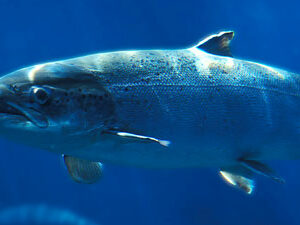New CEPA Bill Promises Lots of Future Action, But Nature Needs Protection Now
FOR IMMEDIATE RELEASE
Today, Nature Canada welcomed the introduction of Bill C-28 amending the Canadian Environmental Protection Act (CEPA), which manages toxic substances and genetically engineered animals.
Said Nature Canada’s Senior Advisor Mark Butler, “CEPA has not been significantly updated for more than two decades and so has not kept pace with the dramatic developments in the field of genetic engineering.”
“The Minister stated today that Canada needs to confront 21st century issues with 21st century science. There is no more 21st century issue than genetic engineering and the Government must move quickly to protect nature, which is already on the ropes, from this new threat,” added Butler.
Nature Canada had been hoping for changes to the Act to reflect the need to protect nature from genetically engineered (GE) species, such as salmon.
In today’s announcement, the government proposed “a full and comprehensive review” of the CEPA regulations governing the risk assessment of GE organisms. The review of regulations could take several years.
Butler said, “We are concerned about delayed action. While Canadians wait for stronger regulations, Nature Canada proposes a moratorium on the approval of any new GE animals.”
Nature Canada also recommends that Bill C-28 be amended now to ensure a public review takes place whenever the manufacture or import of a new GE animal is proposed, and whenever a waiver of information request is made. This means that all information provided to the government is immediately made available to the public, and it means meaningful public involvement in risk assessment and management processes. The objective should be informed public acceptance before any new GE animal is manufactured, imported, or approved for a new use in Canada.
Genetic pollution is not only forever pollution, it increases over time. Once a genetically engineered organism successfully reproduces with a wild counterpart, the new genes will spread throughout the population.
Canada was the first country in the world to approve a genetically engineered food animal, a genetically modified Atlantic salmon. Canadians were the first to eat it, and because Canada doesn’t require mandatory labeling of genetically engineered foods, they did so without knowing.
A majority of Canadians want mandatory labeling of genetically engineered foods. Labelling would ensure consumers can make an informed choice. “The Government could have required labels under this Act. Instead, it appears they’ve bowed to industry opposition to the labelling of GE foods,” said Mark Butler.
Nature Canada applauds the inclusion in Bill C-28 of a right to a healthy environment and additional protections for vulnerable populations. However, as with many important issues in this Act, these changes are contingent on further steps by the government.
Nature Canada looks forward to a detailed consideration of Bill C-28 by Parliamentarians and an opportunity to make its recommendations for amendments.
Nature Canada released a report in June 2020 highlighting recommendations for modernizing CEPA, including recognizing all Canadians’ right to a healthy environment. Nature Canada worked with Indigenous representatives, scientists, recreational fishing groups, and environmental, health, and animal welfare groups in the development of the report.
Learn more about Nature Canada’s work as we continue the fight to Keep Wild Species Wild.



